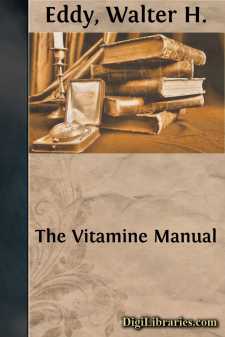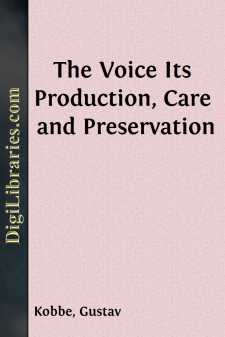Categories
- Antiques & Collectibles 13
- Architecture 36
- Art 48
- Bibles 22
- Biography & Autobiography 813
- Body, Mind & Spirit 142
- Business & Economics 28
- Children's Books 14
- Children's Fiction 11
- Computers 4
- Cooking 94
- Crafts & Hobbies 4
- Drama 346
- Education 46
- Family & Relationships 57
- Fiction 11829
- Games 19
- Gardening 17
- Health & Fitness 34
- History 1377
- House & Home 1
- Humor 147
- Juvenile Fiction 1873
- Juvenile Nonfiction 202
- Language Arts & Disciplines 88
- Law 16
- Literary Collections 686
- Literary Criticism 179
- Mathematics 13
- Medical 41
- Music 40
- Nature 179
- Non-Classifiable 1768
- Performing Arts 7
- Periodicals 1453
- Philosophy 64
- Photography 2
- Poetry 896
- Political Science 203
- Psychology 42
- Reference 154
- Religion 513
- Science 126
- Self-Help 84
- Social Science 81
- Sports & Recreation 34
- Study Aids 3
- Technology & Engineering 59
- Transportation 23
- Travel 463
- True Crime 29
Sort by:
by:
Walter H. Eddy
HOW VITAMINES WERE DISCOVERED In 1911 Casimir Funk coined the name Vitamine to describe the substance which he believed curative of an oriental disease known as beri-beri. This disease is common in Japan, the Philippines and other lands where the diet consists mainly of rice, and while the disease itself was well known its cause and cure had baffled the medical men for many years. Today in magazines,...
more...
I I was on a French steamer bound from Havre to New York, when I had a peculiar experience in the way of a shipwreck. On a dark and foggy night, when we were about three days out, our vessel collided with a derelict--a great, heavy, helpless mass, as dull and colorless as the darkness in which she was enveloped. We struck her almost head on, and her stump of a bowsprit was driven into our port bow with...
more...
by:
Edmund Gosse
AN ESSAY ON THE LIFE AND WRITINGS OF THOMAS NASH. It is mainly, no doubt, but I hope not exclusively, an antiquarian interest which attaches to the name of Thomas Nash. It would be absurd to claim for a writer so obscure a very prominent place in the procession of Englishmen of letters. His works proclaim by their extreme rarity the fact that three centuries of readers have existed cheerfully and...
more...
by:
Gustav Kobbe
CHAPTER IA RATIONAL VOCAL METHODSong, so far as voice-production is concerned, is the result of physiological action, and as voice-production is the basis of all song, it follows that a singing method, to be correct, must be based on the correct physiological use of the vocal organs. The physiology of voice-production lies, therefore, at the very foundation of artistic singing. The proper physiological...
more...
CHAPTER I "Dr. Lavendar," said William King, "some time when Goliath is doing his 2.40 on a plank road, don't you want to pull him up at that house on the Perryville pike where the Grays used to live, and make a call? An old fellow called Roberts has taken it; he is a—" "Teach your grandmother," said Dr. Lavendar; "he is an Irvingite. He comes from Lower Ripple, down...
more...
by:
Hiram Corson
CAN reading be taught? is a question often asked, and partly for the reason, it may be, that so many readers who have gone through courses of vocal training in schools of elocution, or under private teachers, so frequently offend people of taste and culture by an extravagance of expression, by mimetic gesture, and by offensive mannerisms of various kinds. But a reasonable inference cannot be drawn from...
more...
by:
Harold MacGrath
CHAPTER I Fog. A London fog, solid, substantial, yellow as an old dog's tooth or a jaundiced eye. You could not look through it, nor yet gaze up and down it, nor over it; and you only thought you saw it. The eye became impotent, untrustworthy; all senses lay fallow except that of touch; the skin alone conveyed to you with promptness and no incertitude that this thing had substance. You could feel...
more...
MATTHEW ARNOLD THE FUNCTION OF CRITICISM The critical power is of lower rank than the creative. True; but in assenting to this proposition, one or two things are to be kept in mind. It is undeniable that the exercise of a creative power, that a free creative activity, is the true function of man; it is proved to be so by man’s finding in it his true happiness. But it is undeniable, also, that men may...
more...
by:
O. Henry
I Twenty-five years ago the school children used to chant their lessons. The manner of their delivery was a singsong recitative between the utterance of an Episcopal minister and the drone of a tired sawmill. I mean no disrespect. We must have lumber and sawdust. I remember one beautiful and instructive little lyric that emanated from the physiology class. The most striking line of it was this:...
more...
THE MEN BEHIND THE MACHINES I MACHINES. AS SEEN FROM A MEADOW It would be difficult to find anything in the encyclopedia that would justify the claim that we are about to make, or anything in the dictionary. Even a poem—which is supposed to prove anything with a little of nothing—could hardly be found to prove it; but in this beginning hour of the twentieth century there are not a few of us—for...
more...











